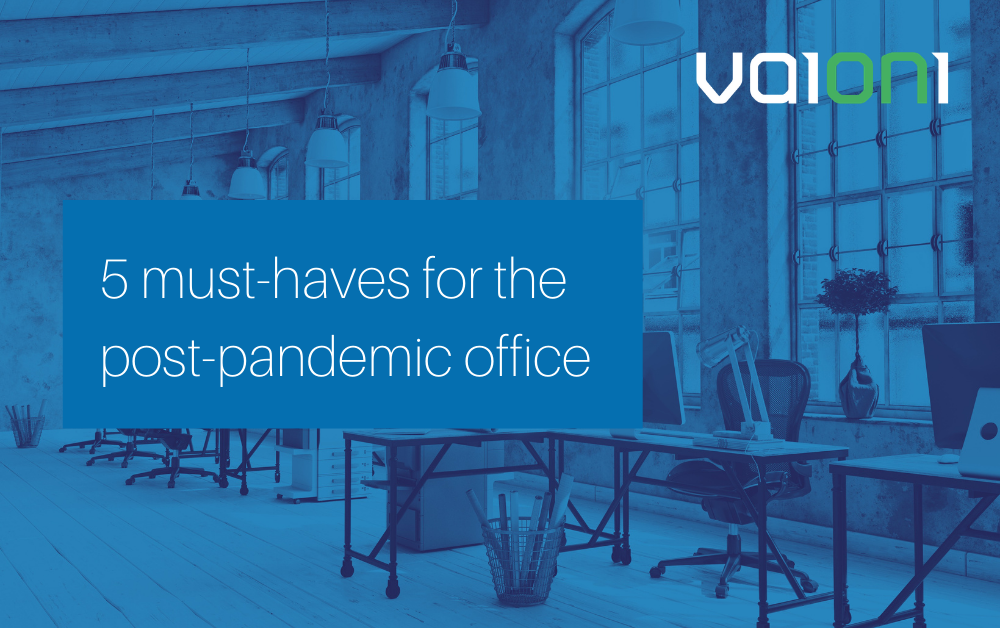There’s every chance you’re working from your home office today and, needless to say, you’re far from alone. Millions of us switched to remote working during the pandemic, and some of us will continue to work remotely even when it ends. A few of us may be entirely based at home, but most businesses are likely to employ a hybrid model, where employees spend some time in the office and some time working remotely.
This could be good for employees, but what does it mean for the office? If you’re in the commercial property business, and you’ve been reading about major firms dispensing with offices altogether, you may be starting to panic. Is the long era of the office on its way out?
Despite the current crisis, it’s highly unlikely. Offices will have to change and adapt, and commercial property operators will have to work harder to attract tenants. But experts agree that the office will still play a central role in our working lives. It’s too important for collaboration, team bonding and simply having somewhere to go. We’ve all embraced the benefits of home working during Covid, but not many of us want to do it all the time.
What’s probably true is that companies will no longer rent office space on the assumption that every employee needs a desk to themselves. That might reduce the size of their office estates overall, and increase competition for tenants. As a commercial property company, the key to your future success will be to meet the needs of a new breed of ‘work anywhere’ professionals, and the increasingly digital-first businesses that employ them.
With that in mind, here are five must-haves for the post-pandemic office:
1. Fewer workstations, more meeting rooms
In a renter’s market, tenants will expect more. They’ll increasingly demand offices that draw employees in not because they have to be there, but because they want to be.
So the question is, why would they want to be? What will entice them into the office? After all, many of them will now have a workstation at home. In which case, the office won’t be a place to tick off tasks on a day-to-day to-do list anymore, but a welcoming space to meet and collaborate. That will mean less workstations, and more places to chat. Think pods for one-to-ones, comfy spaces for small team sessions, and meeting rooms equipped with the latest digital kit.
2. Areas for…anything you want
Offices will also become places where people meet just for the camaraderie of it. Home working has many benefits, but it can be isolating. Employees will be drawn to the office for a coffee with colleagues, and then stay to hot desk for a few hours. Some businesses may give staff specific reasons to come in on certain days, such as lunch clubs, afterwork gaming competitions, and fun, free-ranging brainstorming sessions. Offices will need to provide space for these activities. If it can’t be dedicated space, the design will need to be agile enough to accommodate them on an as and when basis.
3. Peace and quiet
Offices will also need to provide quiet spaces, for two reasons. Some employees might get precious little peace at home, because not all homes are suitable for home working. And the hybrid working model assumes that teams will be apart much of the time, with some members at home and some in the office. Enclosed booths will facilitate small-scale video chats between on- and off-site colleagues. They can also be used for quiet contemplation and short periods of ‘me time’.
4. Wellbeing at work
Talking of me time, some staff will have discovered the joys of cycling during lockdown, and some will have nurtured a daily home-workout habit. They will be loath to give them up when they return to the office. A few of their colleagues may simply be dreading the return of long, hot, cramped commutes. Cater for all these groups with well-equipped showers, and perhaps a space dedicated to wellbeing. It doesn’t need to be a fully equipped gym (though it can be): a bright, empty space with plenty of room for yoga mats and medicine balls will do.
5. The office as digital hub
Businesses that survived and even thrived in 2020 were often those that quickly transitioned to a digital-first model, prioritising sophisticated communication and collaboration tools, cloud-based SaaS applications, digital customer support and e-commerce. That has led to a surge in demand for data. Digital-first businesses need offices that can double as high-powered digital hubs.
They need to be online from day one, and forward thinking commercial property operators will attract them with the promise of high-performing, building-wide connectivity that is secure, optimised, and always available.
Download our white paper on the future of the office
To grasp this new opportunity, commercial real estate operators need exactly the right connectivity partner, because offering an internet connection is no longer enough.
We’ve created a white paper to help commercial property companies avoid the pitfalls and grasp the opportunities of post-pandemic working models. The paper takes a more in depth look at the future of the office, and what business customers will demand from workspaces that are, increasingly, locations where collaboration and interaction happen rather than the kind of everyday tasks that can be completed elsewhere.
The office is by no means dead, but it is being reimagined. Our white paper tells you all you need to know to stay ahead of the curve. Download it here.


